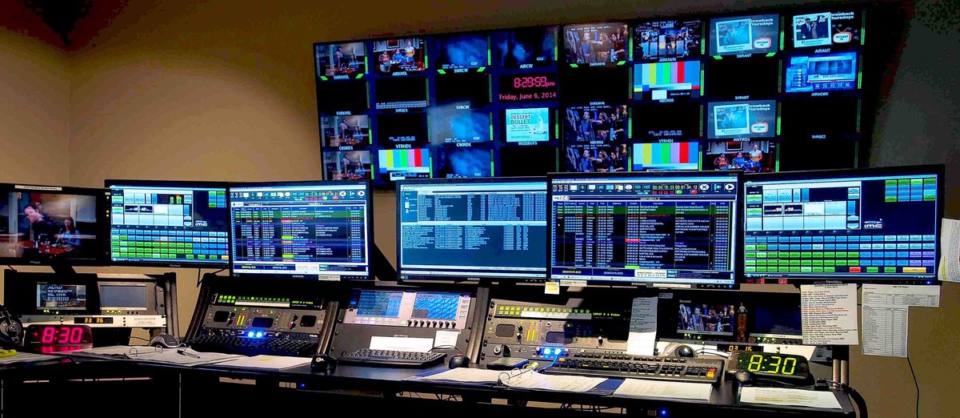The National Media Commission (NMC) has held an emergency meeting in Accra to consider issues relating to the directives issued by the Minister of Communications, Hon. Mrs. Ursula Owusu-Ekuful, to the Ghana Broadcasting Corporation (GBC) and Crystal TV, regarding their broadcasting channels on the National Digital Terrestrial Television (DTT) platform.
The Commission has examined:
i. A petition from the Ghana Broadcasting Corporation (GBC)to the NMC dated July 7, 2020;
ii. a letter from the Minister of Communications addressed to the Director-General of GBC dated June 26, 2020;
iii. a letter from the Minister for Information to the NMC dated July 16, 2020;
iv. and also, a letter from Crystal TV to the Minister of Communications dated July 16, 2020, and copied to the NMC.
The Commission is grateful to the Minister for Information, Hon. Kojo Oppong-Nkrumah, for providing detailed explanation of what constituted his understanding of the issues. However, the Commission believes that any discussion on the matters at stake should be situated within the overall context of the 1992 Constitution of the Republic of Ghana.
A fundamental function of the Commission under Article 167(a) is “to promote and ensure the freedom and independence of the media for mass communication or information”. Article 167(c) of the Constitution mandates the NMC to “insulate the state-owned media from governmental control”. The freedom and independence of the media as guaranteed under Article 162(1) of the Constitution, encompasses all forms of media for mass communication operated by both the state-owned and the private media.
The Commission’s mandate to insulate the state-owned media, therefore, enjoins the Commission to protect the Board, Management and staff of GBC from political interference as well as safeguard and preserve the entirety of state-owned media facilities, assets and other resources from governmental control.
Political control can emanate from overruns on the right of the Board and Management to prudently manage the resources of the Public Broadcaster in accordance with sound public administration principles.
It is the view of the Commission that any action by any entity which culminates into limiting or depriving the media of the use of public resources legitimately allocated to them undermines their capacity to serve the nation as anticipated by the Constitution.
The Commission wishes to state clearly that the directive given to GBC and Crystal TV by the Minister for Communications purports to usurp the constitutional mandate and authority of the National Media Commission and same cannot be obliged under our current constitutional dispensation.
We wish, however, to take advantage of the current discussion to draw public attention to the Commission’s concerns regarding the operations, management and governance of the National DTT platform.
Broadcasting at all material times has involved two elements. These are content production and transmission. The two combine to constitute the broadcast medium. The DTT platform is the new technology for broadcasting transmission. It is indeed part of broadcasting. It should therefore be treated as media to enable it benefit from all the freedoms guaranteed the media by the 1992 Constitution.
Second, it is state-owned. Therefore, it must be covered by the constitutional provisions on the state-owned media.
Third, it is uniquely positioned as the medium through which all free-to-air broadcast content can be transmitted to reach the Ghanaian public. Accordingly, it sits at the gateway of public communications with the capacity to determine whose ideas get communicated within the public sphere. It would be unhelpful to democracy to leave the control of the gateway to public communications in the hands of a Minster of State. Allowing politicians to control the gateway to public communication would introduce vulnerabilities into the constitutional firewalls of free expression in Ghana.
To put our concerns on the DTT in context, we wish to state that the National Media Commission has always held and articulated the foregoing view since the process of migration started a little over a decade ago. In the intense partisanship of public policy debate in Ghana, we feel obliged to reiterate that this is not only a matter of fact, but also that of principle.
The National Media Commission assures the general public that it is highly aware and alert to the huge responsibility it bears as the shepherds against any form of encroachment by individuals, politicians and state agencies on the freedom and independence of the media, and we shall continue to perform our constitutionally-mandated guardian role with high sense of dedication, alertness and patriotism.
Yaw Boadu-Ayeboafo
Chairman
Latest Stories
-
Mahama vows to create an agro-processing zone in Afram Plains
4 mins -
Political parties should plan for losses, not just wins – IGP advises
6 mins -
524 Diasporan Africans granted Ghanaian citizenship in ceremony
7 mins -
Mahama urges Afram Plains North residents to avoid ‘skirt and blouse’ voting
9 mins -
Asantehene receives more 19th century gold ornament and regalia
16 mins -
Hohoe Ghana Blind Union organises training for members ahead of Election 2024
23 mins -
Alan Kyerematen reveals his future plans for Ghanaian Health professionals
23 mins -
AAIN empowers women and small enterprises in Upper East Region through SHINE project
25 mins -
Akufo-Addo leads nationwide commissioning of 80 educational projects
31 mins -
Ghana and Seychelles strengthen bilateral ties with focus on key sectors
1 hour -
National Elections Security Taskforce meets political party heads ahead of December elections
1 hour -
Samsung’s AI-powered innovations honored by Consumer Technology Association
1 hour -
Fugitive Zambian MP arrested in Zimbabwe – minister
2 hours -
Town council in Canada at standstill over refusal to take King’s oath
2 hours -
Trump picks Pam Bondi as attorney general after Matt Gaetz withdraws
2 hours

